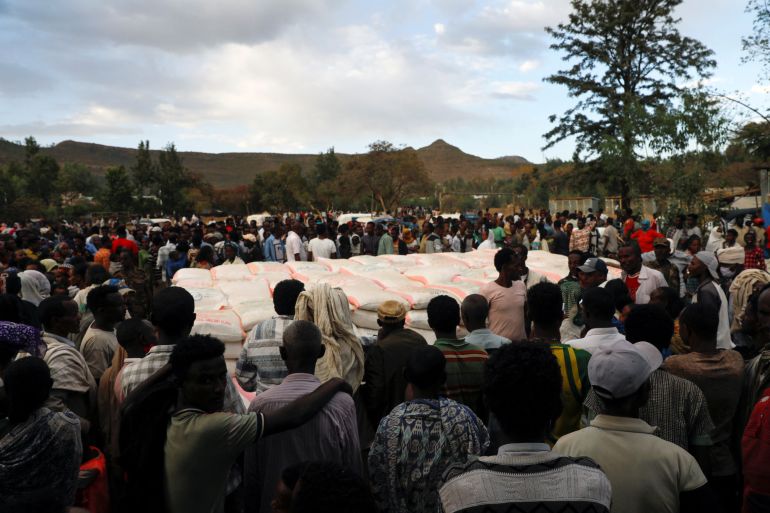WHO chief warns time running out to ‘prevent genocide’ in Tigray
Tedros says food and health care being used as weapons in his home region in northern Ethiopia.

World Health Organization Director General Tedros Adhanom Ghebreyesus says there is a “very narrow window now to prevent genocide” in his home region of Tigray in northern Ethiopia.
Tedros, who previously served as Ethiopia’s health minister and foreign affairs minister, has been sharply critical of Ethiopian authorities throughout the two-year war.
Keep reading
list of 3 itemsEthiopian government, Tigray rebels accept peace talks invitation
What Ethiopia can teach the US about abortion rights
The government has, in turn, accused him of trying to procure arms and diplomatic backing for rebel forces – charges he has denied.
In his sharpest comments on the war yet, Tedros told reporters in Geneva on Wednesday that food and health care were being used as weapons of war in Tigray, which is largely cut off from the outside world.
“There’s no other situation globally in which six million people have been kept under siege for almost two years,” Tedros said. “There is a very narrow window now to prevent genocide.”
Ethiopian government spokesman Legesse Tulu, National Security Adviser Redwan Hussein and the prime minister’s spokeswoman Billene Seyoum did not immediately respond to requests for comment.
The conflict began in November 2020 when Ethiopian Prime Minister Abiy Ahmed sent troops into Tigray after accusing the region’s ruling Tigray People’s Liberation Front of attacking federal army camps.
Abiy’s campaign has received the support of Eritrea, with which Ethiopia was at odds until a rapprochement that earned Abiy the 2019 Nobel Peace Prize.
A truce between pro-government forces and rebels this year lasted five months before it collapsed in August.
‘Untold civilian casualties’
The Ethiopian government has repeatedly denied blocking humanitarian supplies to Tigray or targeting civilians. The conflict has killed thousands of people, displaced millions and left hundreds of thousands on the brink of famine.
Ethiopian forces and their allies have captured several towns in Tigray this week, raising fears that the advancing soldiers will commit abuses against civilians.
A joint investigation last year by the United Nations and Ethiopia’s state-appointed human rights commission found that all sides fighting in the Tigray war had committed violations that might amount to war crimes.
Ethiopia’s government said this week that its forces respect human rights.
The Tigray conflict is rooted in long-running rivalries between regional power blocs over control of Ethiopia as a whole and in deep disagreements over how power should be balanced between federal and regional authorities.
Ethiopian authorities have previously accused Tedros of supporting Tigray forces without providing evidence.
“Yes, I’m from Tigray, and, yes, this affects me personally. I don’t pretend it doesn’t,” Tedros said on Wednesday.
“I have many relatives in some of the most affected areas. But my job is to draw the world’s attention to crises that threaten the health of people wherever they are.”
He made his comments as US-based Human Rights Watch called for sanctions against Addis Ababa to avert civilian deaths.
The rights group urged the United States, European Union and UN to apply sanctions and an arms embargo against Ethiopia to help protect civilian lives.
“Collective inaction is no longer an option,” said Laetitia Bader, the group’s director for the Horn of Africa. “Key actors need to change tact and use all tools at their disposal to protect civilians at risk of further atrocities.”
“The suffering of civilians in Ethiopia should no longer be tolerated in the name of political expediency,” she said.